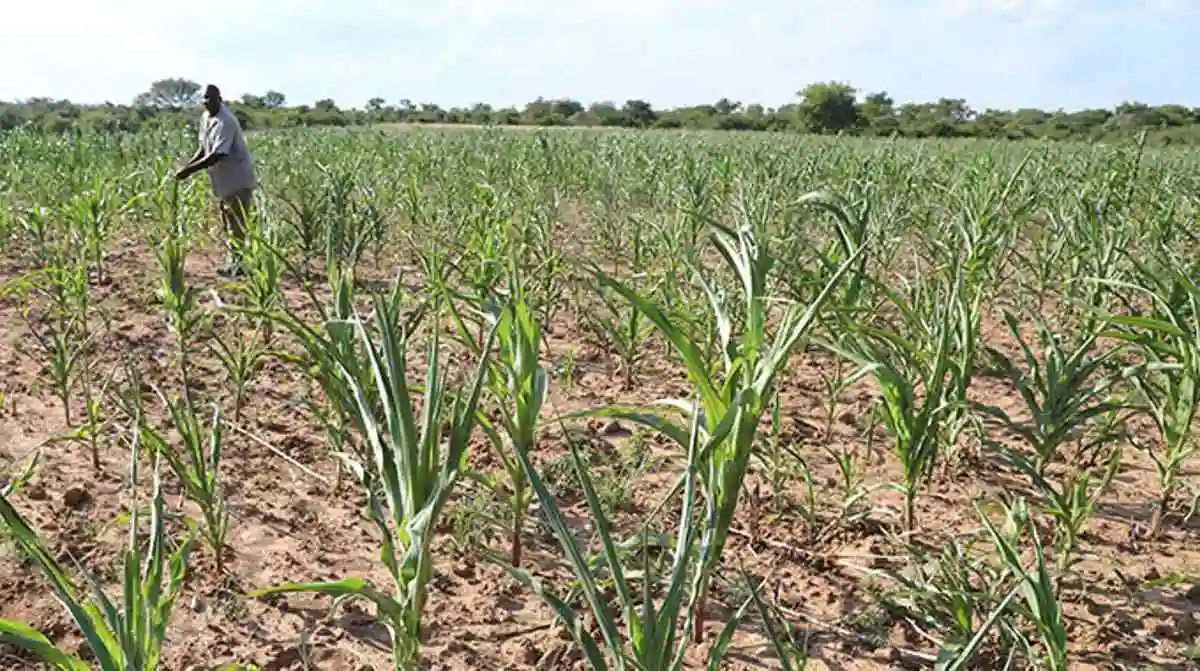United Nations officials have appealed to the international community for support to help Zimbabwe address the humanitarian impacts of El Niño which is threatening 7.6 million people with acute hunger.
The 2023-2024 summer season was blighted by shifted rainfall patterns and long dry spells during the critical planting season which left large parts of the region with insufficient rainfall and above-average temperatures.
The drought has deeply impacted Zimbabwe’s economy, forcing the government to reduce growth projections.
The country is also facing critical water shortages, and more than 22 per cent of school-aged children are out of school because of the economic and social impacts of the drought.
The urgent need for support was made by Reena Ghelani, the United Nations Assistant Secretary-General and climate Crisis Coordinator for El Niño – La Niña and Valerie Guarnieri, the Assistant Executive Director of the World Food Programme, with Edward Kallon, the UN Resident and Humanitarian Coordinator for Zimbabwe, as they concluded a week-long drought-assessment mission to the country.
Valerie Guarneri, WFP’s Assistant Executive Director said:
It’s tragic. Families have harvested nothing at all, and their food stocks are empty. Families are now making survival decisions as the situation continues to worsen.
During the peak of the lean season between January and March next year and we are in a race against time to provide assistance.
During their week-long mission, the delegation met with senior Government Officials including Constantino Chiwenga, Minister of Local Government and Public Works Daniel Garwe, Members of National Drought Response Inter-Cabinet Ministers, the Department of Civil Protection (Zimbabwe’s disaster management authority), local authorities and humanitarian workers on the ground as well as communities most affected.
They visited Matobo District in Bulawayo and Umguza District in Matabeleland Province where they witnessed first-hand the impact of the drought and efforts made to support climate-smart agriculture, provide alternative income in urban areas and prevent gender-based violence against women and girls. Said Reena Ghelani:
The people we’ve met in Zimbabwe are facing a historic drought and need urgent support now.
Moreover, Southern Africa may be facing extreme droughts like this one every decade: we need support for the medium term so that communities are not vulnerable to future shocks.
According to the latest estimates, 5.9 million people in rural areas and 1.7 million people in urban areas may face acute hunger during the coming lean period, and until the next harvest in April 2025.
The UN-coordinated Drought Flash Appeal for Zimbabwe, which brings over 60 organisations together to complement national efforts, is requiring $429 million to assist 3.1 million people this year but is only about 20 per cent funded. Said Kallon:
Thanks to early funding from the UN Central Emergency Response Fund, the African Risk Capacity and other partners, the UN and partners have been able to kickstart anticipatory action and early response activities to mitigate the worst impacts of the drought.
Now we need to scale up the response, to ensure that no one dies of hunger and children remain in school.
More: Pindula News

